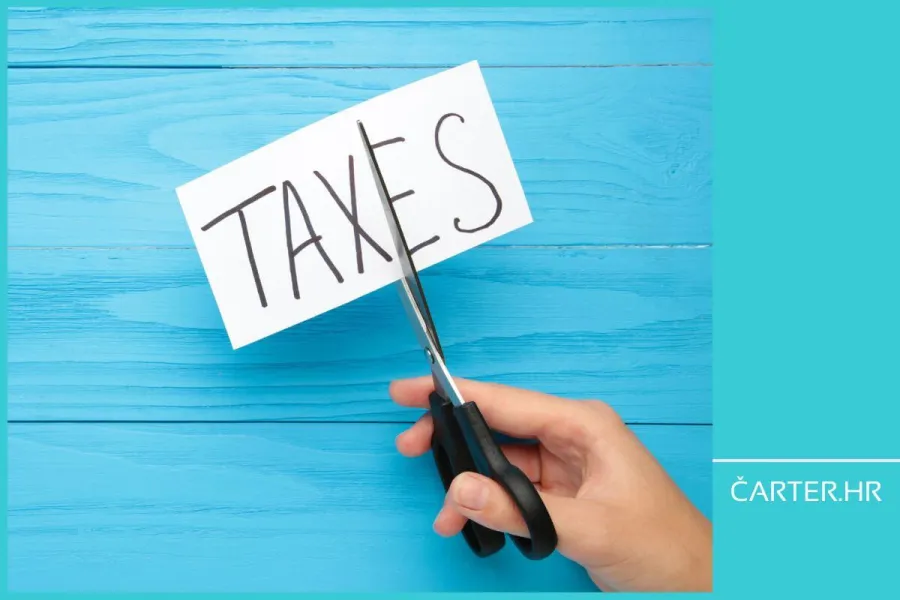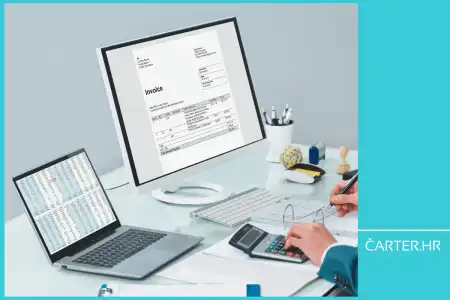
- 04.06.2024.
- Finances
Every entrepreneur aims to optimize their business and reduce costs, but one of the biggest challenges is reducing the profit tax base without affecting earnings. In his new article, Ivica Žuro unveils permissible methods to help you effectively reduce tax obligations and increase your business's profitability. Discover these easily applicable strategies, whether you are a small, medium, or even large entrepreneur.
How can we reduce the profit tax base without affecting earnings?
This question arises for some entrepreneurs at the start of the last quarter of the year and most after November 15, in other words, at the last minute.
If you work in tourism in Croatia and haven't focused on this during the season preparation while the revenue was coming in, it's time to adopt new practices to avoid paying more tax than necessary this year.
Making mistakes is a good learning experience if they are not repeated.
The first sign of intelligent behaviour is not repeating the same actions while expecting different results.
Therefore, considering tax optimization in late spring is a welcome sign of business intelligence, as many legally allowed methods ultimately result in a lower profit tax paid.
Nautical charter is a type of tourist activity that generates high revenue, so knowing the methods and regulations that allow for this is especially significant.
In this edition, we will outline situations that can affect your year-end results, commonly encountered by small entrepreneurs, although, of course, nothing prevents medium and large businesses from using them.
Important note: The use of each method should be economically justified and not arbitrary!
Let's get to work.
Non-taxable payments
We wrote earlier this year about new tax reliefs and won't repeat or go into excessive detail.
However, it's a good starting point for reducing tax and contribution costs on employee payments, as just three categories—performance rewards, meal costs, and occasional bonuses—allow for non-taxable payments of up to €3,020.
Renting your own equipment and space
If a business owner owns the space or equipment used for the registered business activity, it is entirely legal and justified for the owner to rent the space or equipment to their legal entity.
This way, you can increase the company's expenses and reduce profit tax while paying yourself for using the space and/or equipment, following the applicable tax rates.
This remains a good option for the owner because it is still very beneficial, even after paying tax on property income. 
Using accelerated depreciation rates
Acquired tangible and intangible long-term assets with an individual value exceeding €665 are subject to depreciation calculation.
The Corporate Income Tax Act prescribes maximum annual depreciation rates for specific asset groups.
The catch is that the same Act allows these rates to be doubled, enabling the application of accelerated depreciation. This increases depreciation expenses, ultimately resulting in lower profit tax payments.
What is important is that assets that are rapidly depreciating must actually be used more intensively than in earlier periods.
Logically, greater wear and tear equals a shorter lifespan.
Investing in employee education
These costs are naturally recognized as tax-deductible expenses, though they are essential investments for the future.
It's a win-win situation.
In some cases, such expenses can reduce the tax base by up to 80% of justified costs incurred for employee education, resulting in higher productivity and profitability.

Tax-deductible education expenses include tuition fees, seminars, courses, conferences, specializations, lecturer and instructor fees, literature costs, and even daily allowances, accommodation, and transportation costs for those being educated.
The amount of tax relief is prescribed by the Law on State Support for Education and
Training and depends on the type of education, the size of the business, and the country's geographical location.
Passive accruals
Using passive accruals can save an entrepreneur significant amounts on profit tax by ensuring the correct timing of income and expense recognition.
They relate to deferred payment of expenses and future period income, dealing with business transactions that begin in one year and end in the next or beyond.
A typical example of expenses is the deferred payment of costs for which invoices haven't arrived by the end of the year they pertain—such as electricity, water, rent, etc. If not recorded in the relevant period, your company's expenses will be underestimated, results overestimated, and you'll pay more profit tax.
Future period income refers to pre-invoiced revenues that will actually occur in the future.
For instance, a consulting service running from September of the current year to April of the following year with an invoiced amount of €24,000 net should recognize only the income pertaining to the current year, i.e., €16,000 net. The remainder represents future period income.
Adjustment and write-off of receivables from customers
There's a saying: " There are all kinds of us, and most of all, different."
Similarly, in business, despite the legal obligation to settle debts, it sometimes happens that customer receivables are unlikely to be collected.
In such cases, the legally mandatory adjustment of uncollectible receivables is performed, directly impacting profit tax by becoming an expense of the period.
It's essential to meet certain conditions for the write-offs to be tax-deductible in the year they are recorded.
These include:
- Receivables are recorded as income in the business books,
- They are not time-barred,
- More than 60 days have passed since the due date until the end of the tax period,
- Receivables remain uncollected up to 15 days before submitting the profit tax return.

If all actions for debt collection (lawsuit, enforcement, bankruptcy filing) are not taken by the time the receivable becomes time-barred, the previously recognized expense must increase the taxable profit base.
The law also recognizes exceptions, allowing some receivables to be tax-deductible even without all collection actions taken.
This can be done if the receivable is from unrelated persons, is time-barred, and does not exceed €663.61 per individual debtor subject to profit tax and income tax on independent activities.
Previous period loss
It's best when it doesn't happen. Still, suppose it does for a few years. In that case, it's not the end of the world if the other periods were positive and have acceptable business indicators.
A loss incurred in a business year can reduce the tax base in a future year or years in which profit is achieved.

Namely, it can be utilized in the next 5 years from its occurrence or until it is covered by profit.
Here's a practical example from a period we hope won't repeat.
Suppose that in 2020, due to the well-known COVID circumstances, a company in the Adriatic region had a loss of €60,000. The following year, it had a profit of €5,000, and in 2022, a profit of €80,000. In that case, for 2021, there is no tax base for profit tax, and for 2022, it amounts to €25,000.
In other words, the loss from 2020 reduced the tax bases for the next two years—entirely for 2021, and for 2022, the base was reduced by the remaining €55,000 of the carried-forward loss.
That's it for the most commonly used methods of managing the situation with the aim of achieving your planned business and financial goals and ultimately paying less profit tax.
And all in accordance with the law.
If you are interested in advanced business finance management aimed at long-term business sustainability and profitability, we are here to answer any questions.
Categories of trends
- News
- Sale
- Marketing
- SEO
- Web design
- Social media
- Technology
- Regulations
- Management
- Education
- Finances
- User experience
Newsletter
Sign up for the newsletter and receive the latest trends and tips straight to your inbox




